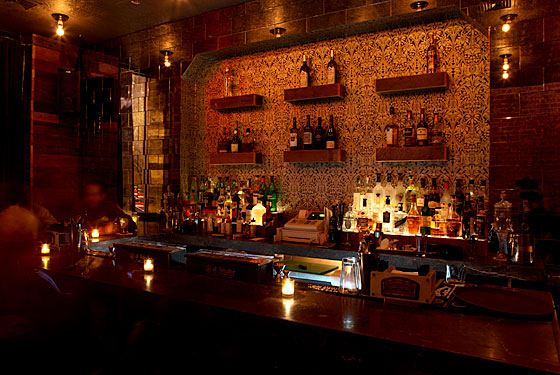
According to the latest census figures, Harlem, for the first time since the thirties, is no longer majority black. What does this mean for the neighborhood—does it even matter?
Karl Franz Williams, Owner, Society Coffee + 67 Orange: Yes, the demographics are changing, but for us, it’s not necessarily about the number of black people in Harlem but that Harlem continues to be a center of African-American culture. You go to the Lower East Side to experience Jewish, Italian, and Irish culture, and people come to Harlem for black culture, and this must be maintained.
But what does a gentrified Harlem mean in business terms?
Nikoa Evans-Hendricks, Co-Owner, N Boutique: On paper, the education and income levels might appear comparable to other parts of Manhattan, but the spending level is still not there. Folks who had money might have used it all to buy their apartments; folks with disposable income often shop only downtown. As business owners, we still have the same kinds of operating costs, but with far less foot traffic and fewer customers, who are spending less.
Williams:And spending in a shorter amount of time; we make upward of 40 percent of our revenue just from Friday to Sunday, but we still have to be open seven days a week.
So how do you survive as a Harlem business?
Leah Abraham, Owner, Ristorante Settepani: Harlem has million-dollar condos next to one of the poorest neighborhoods in the city, so you have to be accessible to every type of customer—the sophisticated diner as well as someone who can only afford a cup of coffee. When we first opened, we sold cookies for 75 cents and gift baskets for $100.
Evans-Hendricks: You must be respectful of the consumer up here, never elitist, never intimidating. And be able to hang on until your market kicks in. A place like 67 Orange sells expensive cocktails, but they also offer cayenne-spiced popcorn for $4. The person spending the least must feel as welcome in Harlem as those spending the most.
Harlem is known for its entrenched political machine. How are old-timers responding to your efforts?
Tren’ness Woods-Black, Owner, Sylvia’s: Well, I’m part of those old-timers, and I can say even back in my grandmother Sylvia’s time, we’ve always had to operate as a community here; each business must support the other to prosper. beatrice
Sibblies, Principal, BOS Development: We still suffer from zoning challenges; current laws favor large-scale retail on major thoroughfares like 125th Street, but not on the avenues. Zoning also makes it difficult to open new businesses in older buildings. These kinds of restrictions are why new businesses on Adam Clayton Powell and Lenox Avenues develop hodgepodge, but because so much development on Frederick Douglass Boulevard is brand-new, a real retail and leisure corridor has been able to develop.
What would you say to businesses planning to open in Harlem?
Evans-Hendricks: You have to be conscious of scale here, of the size of your business and potential market. Harlem is a residential district, a true community, and respect must be shown for that—this a not a place to just parachute into.
Woods-Black: This is why we still serve breakfast. The cost both in time and labor is so great—we’re practically giving it away. But we’ll always keep serving breakfast, because the Harlem community wants it.